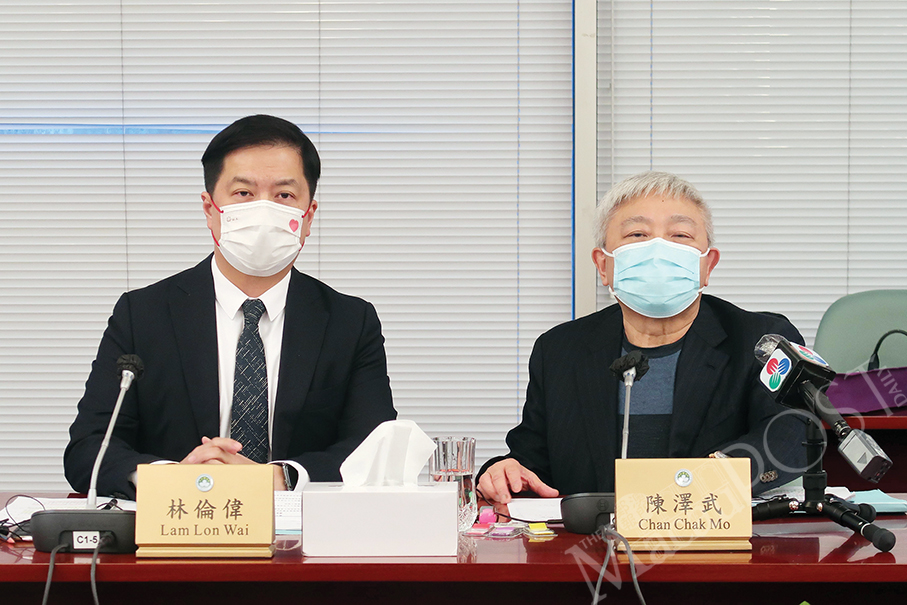Lawmaker-cum-restaurateur Andrew Chan Chak Mo, who chairs the Legislative Assembly’s 2nd Standing Committee, said yesterday that some committee members wanted to ask the government to clarify various issues, such as what kinds of acts by future gaming concessions would constitute the “endangerment” of national security, the reasons for which the government could revoke a gaming concession.
The committee is reviewing a government-drafted amendment bill, the outline of which was passed by a plenary session of the legislature in its first reading last month.
The committee held its fourth meeting yesterday reviewing the bill. During a press briefing after the closed-door meeting, Chan said that yesterday’s meeting went off “very smoothly”, adding that the members completed their discussions on almost all articles of the bill. According to Chan, most of the opinions raised during yesterday’s meeting were related to the government’s legislative intent of certain articles in the bill, and about the transition process concerning the rules listed in the bill in relation to those listed in the current version of the gaming industry law.
The bill proposes that the chief executive can revoke a gaming concession if it has “endangered” national security and the special administrative region’s security.
According to Chan, committee members said that the bill has a “simple” wording as far as the government’s power is concerned to revoke a gaming concession for allegedly “endangering” national security, meaning that the bill does not specify what constitutes the “endangerment” of national security.
According to Chan, some of the members asked whether the government would only revoke a gaming concession if the concessionaire has been confirmed to have violated Macau’s national security law, or if it would revoke the concession if the government concludes that the respective gaming operator has merely shown signs of endangering national security.
According to Chan, committee members urged the government to clarify who will manage the city’s casinos, as according to the current version of the gaming law, the management of a concessionaire must be delegated to a managing director – a rule that the amendment bill does not propose to change from the current law, but the bill also proposes that a concessionaire can sign an agreement with a “management company” for the latter to manage all or some of the concessionaire’s casinos. According to Chan, the committee members asked whether the concessionaire’s managing director or a possibly hired “management company” has the final say.
The bill proposes that Macau’s future gaming concessionaires must have a paid-up share capital of at least five billion patacas, compared to the just 200 million patacas currently required. The bill proposes that each concessionaire’s managing director must hold at least 15 percent of the company’s paid-up share capital and have permanent residency status in Macau. Currently, the managing director must be a permanent resident as well but only needs to hold 10 percent of the paid-up share capital.
Chan also quoted committee members as asking whether the managing director must hold Chinese nationality, or if he or she will be allowed to hold dual nationality.
Reporters asked Chan whether the recent arrests of junket operators would affect certain gaming operators’ eligibility requirements for bidding for future gaming concessions, he pointed out that the proposed requirements laid out by the gaming amendment bill refer to concessionaires only, adding that a separate bill that is being drafted by the government will regulate the legal requirements for junket operators.

Lawmaker-cum-restaurateur Andrew Chan Chak Mo (right), who chairs the legislature’s 2nd Standing Committee, talks to reporters after the committee’s closed-door meeting yesterday reviewing the government’s gaming amendment bill, while the committee’s secretary, Lam Lon Wai, looks on. Photo courtesy of TDM







